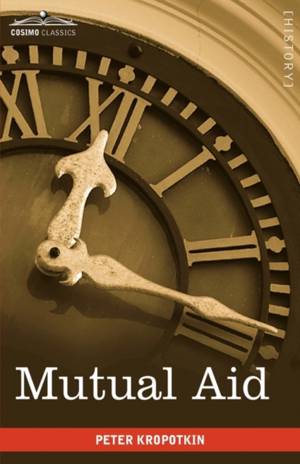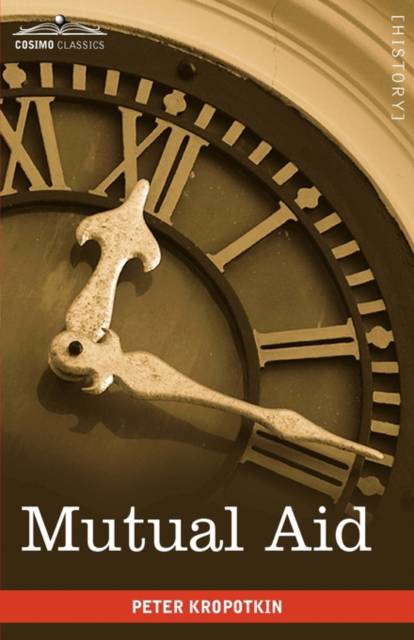
Bedankt voor het vertrouwen het afgelopen jaar! Om jou te bedanken bieden we GRATIS verzending (in België) aan op alles gedurende de hele maand januari.
- Afhalen na 1 uur in een winkel met voorraad
- In januari gratis thuislevering in België
- Ruim aanbod met 7 miljoen producten
Bedankt voor het vertrouwen het afgelopen jaar! Om jou te bedanken bieden we GRATIS verzending (in België) aan op alles gedurende de hele maand januari.
- Afhalen na 1 uur in een winkel met voorraad
- In januari gratis thuislevering in België
- Ruim aanbod met 7 miljoen producten
Zoeken
Omschrijving
Oscar Wilde deemed his life "perfect," and described him as a man with "a soul of that beautiful white Christ which seems coming out of Russia." He is PETER ALEXEYEVICH KROPOTKIN (1842-1921), communist advocate and "anarchist prince." Mutual Aid: A Factor of Evolution, first published in 1902, is his best known book. Written as a series of essays for a British literary journal, this intriguing work filters concepts of evolution through Kropotkin's appreciation for altruism and anarchy, positing cooperation not merely as a beneficial political concept but as an approach that has been-and will continue to be-vital to the long-term survival of humanity. Kropotkin explores "mutual aid" among "animals," "savages," "barbarians," and in the medieval and modern world, and also discusses nesting associations, checks to overmultiplication, adaptations to avoid competition, the origin of the family, the origin of the guilds, and other related issues. Anyone interested in the science of evolution and its influence on the shape of human societies will find this a fascinated read.
Specificaties
Betrokkenen
- Auteur(s):
- Uitgeverij:
Inhoud
- Aantal bladzijden:
- 372
- Taal:
- Engels
Eigenschappen
- Productcode (EAN):
- 9781605206646
- Verschijningsdatum:
- 1/08/2009
- Uitvoering:
- Hardcover
- Formaat:
- Genaaid
- Afmetingen:
- 140 mm x 216 mm
- Gewicht:
- 607 g

Alleen bij Standaard Boekhandel
+ 94 punten op je klantenkaart van Standaard Boekhandel
Beoordelingen
We publiceren alleen reviews die voldoen aan de voorwaarden voor reviews. Bekijk onze voorwaarden voor reviews.









